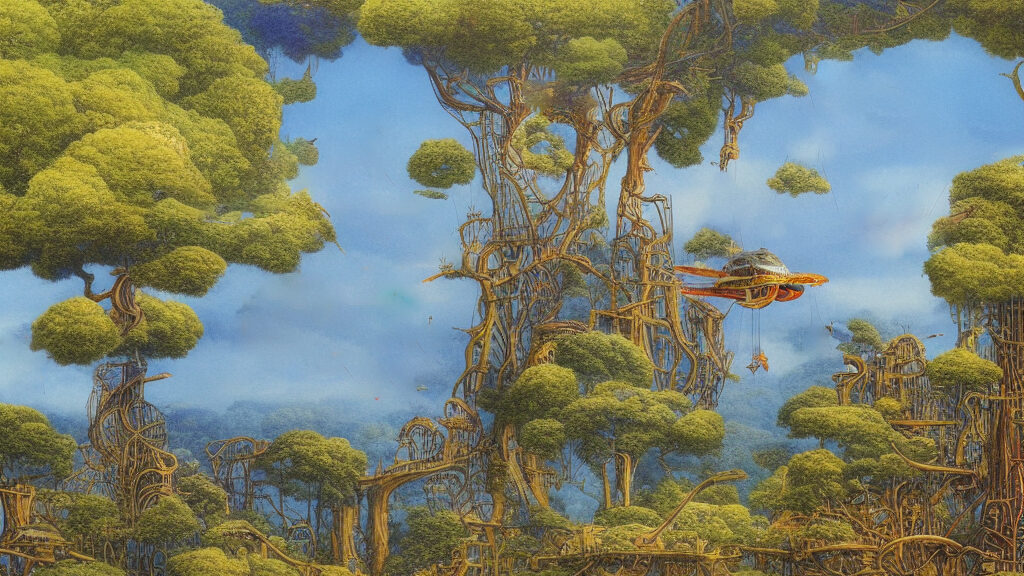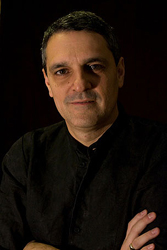
Kotebel has released 5 albums since 2000, including the much-admired ‘Omphalos.’ The main body of Concerto for Piano and Electric Ensemble is formed by the four movements that comprise the ‘Concerto for Piano. There are four additional pieces on the album that are based on conceptual elements.
Kotebel’s music is an approachable amalgam of avant-garde symphonic rock influenced by classical music, jazz and world music.
Composer and keyboardist Carlos Plaza reveals details about Kotebel and its new album Concerto for Piano and Electric Ensemble in this interview with Progressive Rock Central.
Tell us a little about the origin of Kotebel?
Kotebel was born at the end of the nineties. Originally it was meant to be a studio project, and the aim was to enrich my language as a composer with resources from rock, jazz, etc. During most of the nineties I wrote chamber music, with a language heavily based in an impressionist language, also influenced by 20th century composers like Ginastera, Stravinsky or Rachmaninov.
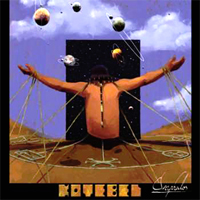
“Omphalos” was the only album with the configuration that we presented in BajaProg (7 members – including flute and voice) and the last two: “Ouroboros” and “Concerto”, as the stable configuration that we have enjoyed since the end of 2007.
What is the meaning of the band’s name, Kotebel?
Kotebel is a word made up by my daughter Adriana when she was about 3 years old. She used that word to refer to any language other than Spanish. Back then I had some British colleagues and when she heard us speaking in English, she would say that we were speaking in “Kotebel”. When I had the idea to create the project, this word came instantly to my mind and I never hesitated. Later, I realized it was a great idea to use a new word because it is very easy to find references in the Internet. Except for minor references to a region in Ukraine (Koktebel), all search engines point to us.
Some have described Kotebel as Venezuelan-Spanish. What is the Venezuelan connection?
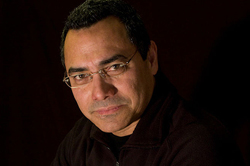
This thing about Kotebel being Venezuelan or Spanish (or both) has been raised in other occasions and has created some controversy. I think Kotebel’s language is rather universal because my musical language is heavily based in universal classical composers, or the classic 70’s prog bands; many of them from the UK, but others from Italy or the US. So it doesn’t make too much sense to argue where Kotebel is from. It is nothing more than occidental contemporary Art-Music.
What kind of musical training do the band members have?
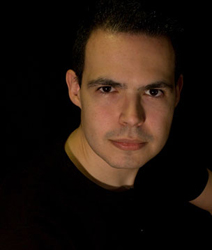
Both César and Jaime have gone through formal studies to some extent, but they are in essence self-taught musicians. In my case, I started learning music very young and was fortunate to have a great teacher at home. I continued my musical studies (piano, theory, harmony, etc.) until I graduated from college at the age of 23. When I moved to Spain I had the privilege of studying composition with Román Alis, an excellent Spanish classical composer who died a few years ago.
Tell us a little about the members of the band.
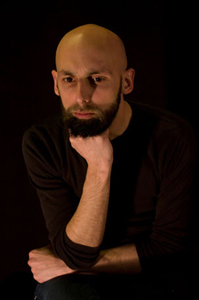
Jaime Pascual is a precision engine; he works in other projects much denser and harsher than Kotebel. Jaime is very talented and creative; his ideas always come to enrich my initial arrangements (well, this can be said for all Kotebel members).
César is an amazing guitar player, and very versatile. I was impressed to see how he was able to stand up to the challenge of combining electric, acoustic and Spanish guitar in the Piano Concerto. He is also a very talented composer and has contributed many fine songs in several Kotebel albums.
Adriana joined Kotebel when she was 16 and, already then, she had achieved a level as a performer that I would never reach. I wrote the Piano Concerto, but would not be able to play it like she does. She feels at ease in front of a stage piano or a synthesizer and her ability to engage tightly, even in very complex passages, is simply amazing. She belongs to that privileged group of musicians that make you think that what they are playing is easy because it looks and sounds effortless. And… sharing the stage with my daughter is an indescribable feeling.
How did Concerto for Piano and Electric Ensemble come about?
From the very beginning when I created Kotebel, I had the clear objective of merging my experience as a classical and rock musician. I felt that there was still a lot to be done in terms of combining elements of both, so that the end result was more than the mere sum of its parts. The Pentacle Suite, Ouroboros (Theme and Variations) and many other pieces are rock animals with a “classical” or “academic” soul if I can put it that way. You can take most songs and see that the way themes and motifs are presented and developed, is very classical. Also, many resources used in classical composition like anticipation, reduction, augmentations, mirroring, etc., are used.
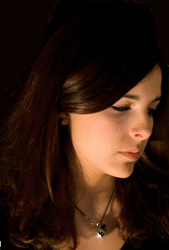
I want to take this opportunity to clarify something that has been pointed out by some reviewers and musicians that have already given me some feedback on the album. Some feel that the album should have ended on the 4th movement because the rest of the pieces in the album are entirely another “breed”. Well, I was happy to hear that because it was exactly my intention. I wanted the rest of the album to act as a counterbalance to the more “academic” or “dense” ideas presented in the Concerto. In addition, I wanted to write some songs under a “less is more” approach; in other words, see how far could I go keeping things as simple as possible. In that respect, I think The Flight of The Hippogriff part II stands out. Also, it is not an accident that there is no acoustic piano in the rest of the pieces (except the Bonus track). So, if you feel like listening to a more “rockish” and “direct” Kotebel, you can start listening to the album from track 5 onwards. It’s like two albums in one.
Who can you cite as Kotebel’s main musical influences?
That’s a difficult question because the sources are diverse. From my perspective, you have to combine classical composers like Ravel or Ginastera or Messiaen, with rock composers ranging from [Keith] Emerson and [Tony] Banks to Daniel Denis (Univers Zero). Carlos Franco incorporates jazz, Venezuelan folkloric music. Adriana is a lot into film music and jazz. Jaime and Cesar are both living music encyclopedias. When they start talking about musicians and bands, I cannot recognize more than half of the names…. What I can say is that all of us know and appreciate progressive rock very well.
How does the composition process work?
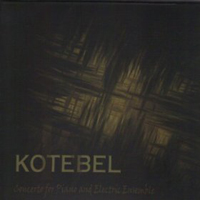
Where does Kotebel get inspiration from?
You can see from the themes in the different albums, that my inspiration sources are very diverse; however, there is one that stands out: poems written by Nathalye, my wife. They have been a constant source of inspiration, even before Kotebel. I have many songs for voice and piano and even instrumental music, based on her poems. She is responsible for the lyrics in “Fragments of Light” and “Omphalos”. In some cases, they were pre-existing poems; in other cases, she wrote the poem with a specific song in mind.
Some pieces are based in Western philosophical / spiritual works like “Mysticae Visiones”, others from Eastern sources (e.g. “Dance of Shiva”). Some are derived from Magic and Alchemy like the “Pentacle Suite”, or other sources like Borges’ Book of Imaginary Beings which is the source of all creatures represented in the album “Ouroboros” or the “Flight of the Hippogriff”. Of course, there are also pieces of “pure” music, with no extra-musical relationship. The best example is the Piano Concerto.
Tell us about your first recordings.
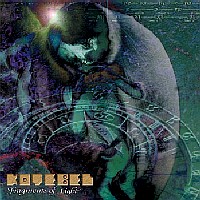
How’s the progressive rock scene in Madrid and Spain in general?
Art-Music in general suffers in Spain from lack of support from the media and the public sector. I know this is the case everywhere, but in Spain the situation is particularly acute. It is not easy to find alternative proposals; consumption of commercial music is massive… This scenario of course is not adequate for the proliferation of progressive rock. However, there are excellent bands trying to make their way and we try to help each other out.
Nathalye and I organized 2 very successful editions of Madrid Art Music Festival in 2008 and 2009, with bands like After Crying, Trettioariga Kriget and renowned musicians like Jerry Marotta, who played with the Argentinean stick player Guillermo Cides. We also had the pleasure of presenting the Spanish band Galadriel, who had not played live for quite some years. We plan to continue organizing the festival, but we are waiting for the economic conditions to improve.
Are you full time musicians?
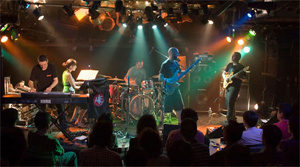
The positive side of this situation is that we do not have to compromise our music due to economic concerns. We do the type of music that we want to do, play where we like and go at the pace we feel comfortable. Even though the live aspect is important and we enjoy it very much, to me the essential aspect of what we do is what we leave behind in terms of recorded material.
If you could gather any musicians or musical groups to collaborate with whom would that be?
I hope we can continue to work with bands similar to the ones with whom we have worked in the past and have become dear friends. Among others; After Crying, Koenjihyakkei and other Japanese bands (KBB, Baraka, Interpose+), the French band Yang (ex-Shylock, ex-Philarmonie) and fabulous Spanish bands like Senogul or October Equus. I’m in talks with several British, Italian and Belgian bands in order to do some collaboration, but this is in a very early stage so I cannot disclose names yet.
Do you have any plan to take Concerto for Piano and Electric Ensemble on the road?
We have confirmed concerts in Madrid (June 30th and July 12th), Austria (August 8th) and two additional concerts in Madrid in September and October. Depending on current conversations, we might add additional concerts in other Spanish cities, and the UK before the end of the year. The best way to stay updated on our live calendar and other relevant Kotebel news, is to join our Fans List at kotebel.com
Are you working on other projects?
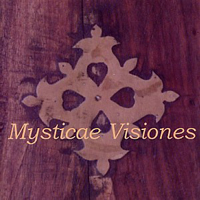
Listen to samples and purchase MP3s:
Buy CD:
